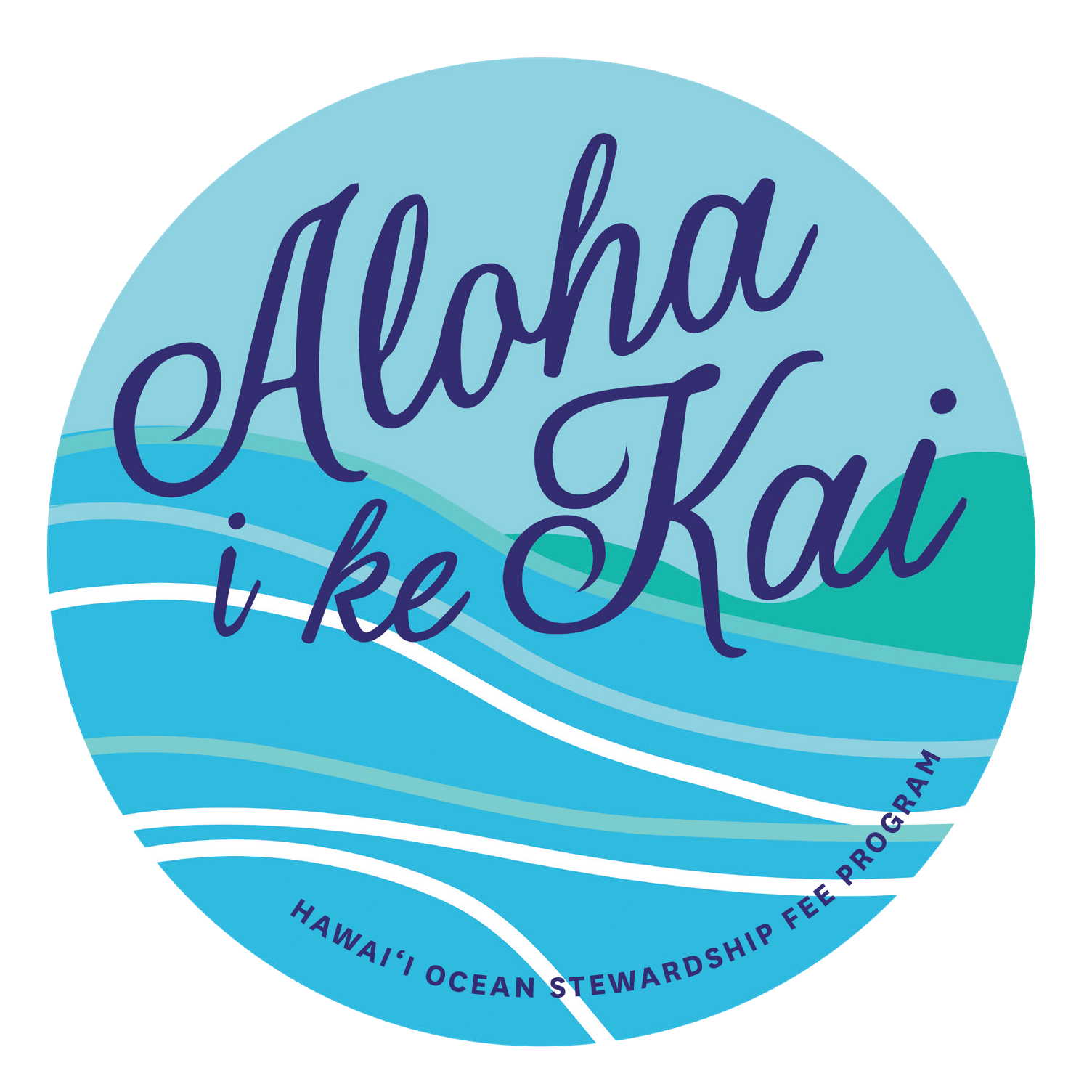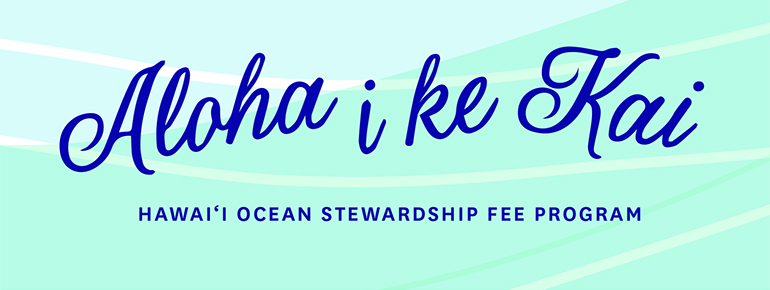FAQ
For Hawai‘i’s Ocean Operators: FAQ
Q: How is the Aloha i ke Kai, Ocean Stewardship Fee enforced?
The Aloha i ke Kai Ocean Stewardship fee relies on you, the holders of Commercial Use Permits (CUP), for its enforcement and success. The Division of Aquatic Resources (DAR) has chosen this method due to logistical challenges in reaching the wide array of ocean-goers directly. As a CUP holder, your unique position allows direct interaction and transactions with customers, making you essential in collecting the fee. It’s your responsibility to gather these fees according to DAR’s regulations, a crucial step for the re-issuance of your CUP. Your role isn’t just about compliance; it’s about leadership in stewarding our oceans’ health. DAR greatly appreciates your commitment and efforts in this collective endeavor.
Q: Is there a provision for Hawai‘i residents to be exempt from the Aloha i ke Kai, Ocean Stewardship fee?
The Aloha i ke Kai, Ocean Stewardship, fee is mandatory for residents who are customers. At the Division of Aquatic Resources (DAR), we understand that this fee alone isn’t the full solution. We recognize that the comprehensive action required to truly regenerate and conserve our oceans extends beyond the scope of any single entity, the challenges are vast and multifaceted, and DAR is committed to playing its part within the limits of its authority and resources. This fee represents a critical way in which DAR, alongside Commercial Use Permit (CUP) business holders and residents, can contribute to ocean stewardship and demonstrate conservation leadership.
Q: Do I need to include the Aloha i ke Kai, Ocean Stewardship Fee in my tax reports as part of my revenue?
No. The Hawai‘i State Tax Department clarifies that the Aloha i ke Kai, Ocean Stewardship fee is not considered taxable revenue. When preparing your tax reports, you should deduct this fee from your total gross receipts. It’s important to maintain precise records of the fee collections and exclude these amounts from your reported revenue. For accurate filing and compliance, we recommend consulting with a tax professional who can guide you based on the latest tax laws and regulations.
Q: Can DAR require commercial operators to carry out their own stewardship program in addition to paying the $1 user fee?
While DAR cannot mandate commercial operators holding a Commercial Use Permit (CUP) to initiate their own stewardship programs, we warmly welcome and encourage any voluntary contributions or initiatives they choose to undertake. If a business decides to collect additional funds for conservation beyond the $1 fee, please note that these funds will not be exempt from the General Excise Tax (GET) or other relevant taxes and fees applicable to business revenue. For businesses interested in further supporting ocean stewardship, we recommend directing customers to the DAR website or providing them with materials to make direct donations to the fund. This ensures that contributions are handled efficiently and in compliance with tax regulations.
Q: What is the difference between the Division of Aquatic Resources (DAR) and the Division of Boating and Ocean Recreation (DOBOR)?
The Aloha i ke Kai, Ocean Stewardship Fee Program is administered by the Division of Aquatic Resources, but relies on commercial operator information which is supplied via the Commerical Use Permit (CUP). The Commercial Use Permit (CUP) is issued by Hawai‘i’s Division of Boating and Ocean Recreation (DOBOR). The permit is specifically related to the usage of state waters and facilities. Although the CUP permit is utilized for this fee, DOBOR does not play a role in facilitating the Stewardship Fee Program.
Both division’s are within the State of Hawaiʻi Department of Land and Natural Resources, responsible for managing, administering, and exercising control over public lands, water resources, ocean waters, navigable streams, coastal areas (except commercial harbors), minerals, and all interests therein. DOBOR manages the regulation and administration of boating and ocean recreation, including the docking, launching, and operation of commercial vessels.
DAR manages, conserves and restores the state’s unique aquatic resources and ecosystems for present and future generations. This mission includes regulating commercial activities related to aquatic resources.
Q: If I already pay monthly DOBOR fees for boating and harbor maintenance, despite not frequently using these services, why am I also required to pay the additional user fee?
The Division of Aquatic Resources (DAR) and the Division of Boating and Ocean Recreation (DOBOR) are separate entities with distinct roles in marine management.
DOBOR fees are directed towards specific boating and harbor maintenance needs. In contrast, the Aloha i ke Kai, Ocean Stewardship Fee Program administered by DAR supports a wider range of marine conservation efforts
This additional user fee isn’t just another expense; it’s a strategic program to balance the environmental impact of ocean goers. By contributing to the Aloha i ke Kai, Ocean Stewardship fee, CUP holding businesses facilitate their customers participation in the stewardship of Hawai‘i’s oceans, embracing their kuleana (responsibility) for preserving this invaluable resource.
By contributing to this user fee, businesses, and individuals alike join a larger collective effort, led by DAR, to safeguard and rejuvenate our oceans– made possible by businesses like yours.
Q: If I pay monthly DOBOR fees for boating and harbor maintenance, how can we ensure the user fund is effectively used to see tangible results?
While the Division of Boating and Ocean Recreation (DOBOR) fees are designated for routine boating and harbor maintenance, the user fund collected through the Aloha i Ke Kai program, managed by the Division of Aquatic Resources (DAR), focuses on broader, more impactful conservation and stewardship projects.
While DOBOR and DAR are distinct entities with different roles, a portion of the user fund will be allocated to improve marine infrastructure, contributing to a shared vision of healthier waterways. Regular updates about these infrastructure improvements and other initiatives will be communicated through the fund dashboard and DAR’s robust community and stakeholder engagement efforts. See the section, about the Aloha i ke Kai, Ocean Stewardship, fund.


